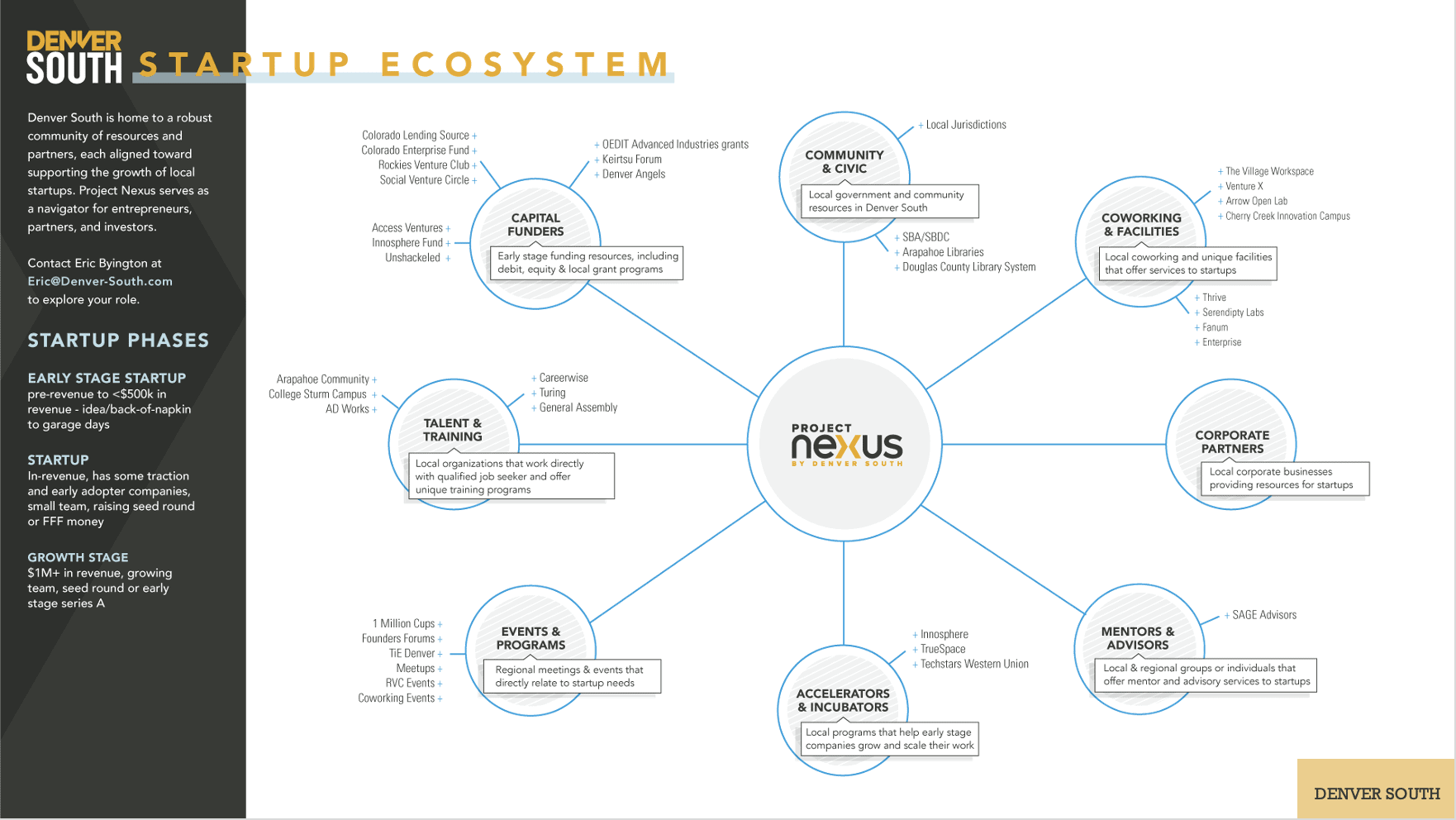Picking a destination to launch a startup used to be simple: You either picked Silicon Valley or New York City. Done.
Today there’s a plethora of options, from bigger hubs like Boulder, to lesser-known areas like New Haven, Connecticut, or Provo, Utah. Investment firms are popping up all over the country, and picking the ideal location now requires more thought and research than simply picking which coast you want to live near.
Looking at locations where successful startup hubs have flourished in recent years, there are some key factors that each of them possess. Even if the location you’re considering hasn’t been recognized as a startup hub yet, it may still have the right ingredients for launching your new business.
Here are six of the key factors to consider when picking the best place to launch your startup:
1. Quality of life
It might sound simple, but selecting somewhere that’s simply a nice place to live has an enormous impact on getting your business started on solid footing. But not only does it need to be a nice place to live, but a nice place to live for the type of workers you’ll want to attract and hire.
Most startups will be looking for young workers who are willing to take lower salaries in exchange for equity or other benefits, like a fun office environment and flexible work schedule. This often comes in the form of recent college graduates, and often from the millennial generation.
41% of millennials say they’ve moved to a new place without the intention of settling there. They’re looking for a good time, and willing to change things up when it begins to feel stagnant. Selecting a city that offers plenty of cultural and recreational opportunities is key to keeping employees happy, and convincing young workers to settle down. Austin offers plenty of nightlife, amazing restaurants and outdoor recreation. Boulder has the mountains as a setting, and New Haven offers seaside recreation. There’s a reason young workers are willing to move to those locations and work at startups, and it’s not just because the job sounds cool.
2. Affordable real estate
Unless you’re a Series D company with tens of millions of dollars rolling in, you probably won’t be able to afford office space in Manhattan.
Affordable real estate that still provides a fun, pleasant work setting is key for new startups. Whether you’re luring a new software engineer, or need to impress potential investors, a hip space sets the tone. But considering the fact that you probably don’t have a lot of funds to spend on office space right out of the gate, finding cities with affordable space should be high on your list.
Detroit’s abandoned warehouses, for example, are being turned into industrial mixed-use spaces. The architecture in these spaces is unique, and affordable, starting at $1.23 per square foot. That’s the kind of real estate that makes sense (and cents — sorry, we had to) for a new company.
3. Critical mass of like-minded businesses
You don’t need to drop your new startup right in the middle of Mountain View, and there’s something to be said about the negative effects of jumping into a saturated market, but you still want to go somewhere that has a track record of startup success.
Look for companies that have had successful exits — if there’s been one, that means there can be more.
Also look for a location that has at least 30-40 startups. This shows that getting funding is definitely possible there, and provides a built-in support system for new companies.
Some cities, like Pittsburgh, have invested heavily in an anchor industry (for Pittsburgh it’s innovation in health care). If your startup connects to a clear anchor, finding a location that has a history of investing in that space is smart: you can rest assured that the city, investors and local officials are already on board with what you’re trying to do.
4. Supportive university system
The thriving startup scenes in places like Austin and the Denver/Boulder metro area don’t happen without the support of nearby universities.
That doesn’t mean you need to pick a college town where the university is spending millions of dollars on its own venture funds, but a university system that supports a startup economy will ease many of the challenges new startups face.
Universities have a vested interest in attracting successful startups. It creates a cycle, where students come to that university not only because of the quality of education they’ll receive, but because they’ll have a good chance of finding a desirable job right out of school. It keeps them in the city, spending money on local businesses, and feeding back into the university system in the form of taxes or attending cultural events on campus.
5. Transportation networks
You might think that something like taxes would be a more important consideration than the local transportation system, but according to a recent survey of entrepreneurs, only 2% saw taxes as an important factor in picking a location to launch a new business. Meanwhile, 21% saw access to robust transportation networks as crucial.
A good public transportation system includes easy commutes for your employees, but also access to major highways and airports. Consider the fact that you’ll be traveling frequently to pitch to investors, meet with clients or customers, and attend industry events, and it quickly becomes clear why this ranks so high on entrepreneurs’ list of considerations.
6. Access to resources and an ecosystem of growth
You’ll also want to look at local government and organizations that promote a healthy startup culture and foster startup communities. This might take the form of organizations or local leadership that provide mentorship, funding opportunities and resources that will support startups throughout various growth stages.
You might normally think of Boulder as the biggest startup haven in the Denver metro area, but launching a new company there is becoming increasingly difficult as real estate cost has skyrocketed — and it’s only getting worse as Google just opened a large campus there.
Suggested Reading:
On the other hand, down the road in the Denver South area, organizations like Innovators International, Innosphere and TIE Rockies are working with local government and development organizations to ensure startups have the support they need throughout their spectrum of growth.
Picking the right location for your company might mean the difference between long-term success or looking for the next opportunity sooner than you hoped. Unfortunately, you’ll probably need to consider more than just these six factors when selecting the ideal location to launch your startup, but these key considerations will provide the starting point for making the right choice.


